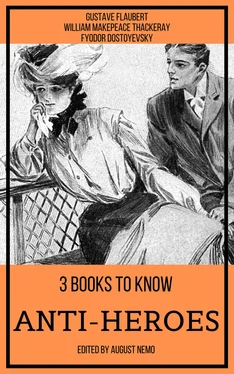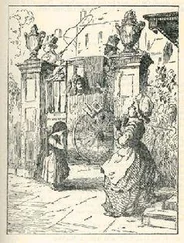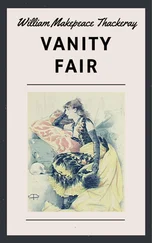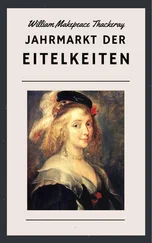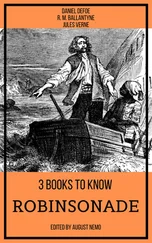––––––––
THE COVERED WAGGON to which I was ordered to march was standing, as I have said, in the courtyard of the farm, with another dismal vehicle of the same kind hard by it. Each was pretty well filled with a crew of men, whom the atrocious crimp who had seized upon me, had enlisted under the banners of the glorious Frederick; and I could see by the lanterns of the sentinels, as they thrust me into the straw, a dozen dark figures huddled together in the horrible moving prison where I was now to be confined. A scream and a curse from my opposite neighbour showed me that he was most likely wounded, as I myself was; and, during the whole of the wretched night, the moans and sobs of the poor fellows in similar captivity kept up a continual painful chorus, which effectually prevented my getting any relief from my ills in sleep. At midnight (as far as I could judge) the horses were put to the waggons, and the creaking lumbering machines were put in motion. A couple of soldiers, strongly armed, sat on the outer bench of the cart, and their grim faces peered in with their lanterns every now and then through the canvas curtains, that they might count the number of their prisoners. The brutes were half-drunk, and were singing love and war songs, such as ‘O Gretchen mein Taubchen, mein Herzenstrompet, Mein Kanon, mein Heerpauk und meine Musket,’ ‘Prinz Eugen der edle Ritter.’ and the like; their wild whoops and jodels making doleful discord with the groans of us captives within the waggons. Many a time afterwards have I heard these ditties sung on the march, or in the barrack-room, or round the fires as we lay out at night.
I was not near so unhappy, in spite of all, as I had been on my first enlisting in Ireland. At least, thought I, if I am degraded to be a private soldier there will be no one of my acquaintance who will witness my shame; and that is the point which I have always cared for most. There will be no one to say, ‘There is young Redmond Barry, the descendant or the Barrys, the fashionable young blood of Dublin, pipeclaying his belt and carrying his brown Bess.’ Indeed, but for that opinion of the world, with which it is necessary that every man of spirit should keep upon equal terms, I, for my part, would have always been contented with the humblest portion. Now here, to all intents and purposes, one was as far removed from the world as in the wilds of Siberia, or in Robinson Crusoe’s Island. And I reasoned with myself thus:—‘Now you are caught, there is no use in repining: make the best of your situation, and get all the pleasure you can out of it. There are a thousand opportunities of plunder, &c., offered to the soldier in war-time, out of which he can get both pleasure and profit: make use of these, and be happy. Besides, you are extraordinarily brave, handsome, and clever: and who knows but you may procure advancement in your new service?’
In this philosophical way I looked at my misfortunes, determining not to be cast down by them; and bore woes and my broken head with perfect magnanimity. The latter was, for the moment, an evil against which it required no small powers of endurance to contend; for the jolts of the waggon were dreadful, and every shake caused a throb in my brain which I thought would have split my skull. As the morning dawned, I saw that the man next me, a gaunt yellow-haired creature, in black, had a cushion of straw under his head.
‘Are you wounded, comrade?’ said I.
‘Praised be the Lord,’ said he, ‘I am sore hurt in spirit and body, and bruised in many members; wounded, however, am I not. And you, poor youth?’
‘I am wounded in the head,’ said I, ‘and I want your pillow: give it me—I’ve a clasp-knife in my pocket!’ and with this I gave him a terrible look, meaning to say (and mean it I did, for look you, A LA GUERRE C’EST A LA GUERRE, and I am none of your milksops) that, unless he yielded me the accommodation, I would give him a taste of my steel.
‘I would give it thee without any threat, friend,’ said the yellow-haired man meekly, and handed me over his little sack of straw.
He then leaned himself back as comfortably as he could against the cart, and began repeating, ‘Ein’ feste Burg ist unser Gott,’ by which I concluded that I had got into the company of a parson. With the jolts of the waggon, and accidents of the journey, various more exclamations and movements of the passengers showed what a motley company we were. Every now and then a countryman would burst into tears; a French voice would be heard to say, ‘O mon Dieu!—mon Dieu!’ a couple more of the same nation were jabbering oaths and chattering incessantly; and a certain allusion to his own and everybody else’s eyes, which came from a stalwart figure at the far corner, told me that there was certainly an Englishman in our crew.
But I was spared soon the tedium and discomforts of the journey. In spite of the clergyman’s cushion, my head, which was throbbing with pain, was brought abruptly in contact with the side of the waggon; it began to bleed afresh: I became almost light-headed. I only recollect having a draught of water here and there; once stopping at a fortified town, where an officer counted us:—all the rest of the journey was passed in a drowsy stupor, from which, when I awoke, I found myself lying in a hospital bed, with a nun in a white hood watching over me.
‘They are in sad spiritual darkness,’ said a voice from the bed next to me, when the nun had finished her kind offices and retired: ‘they are in the night of error, and yet there is the light of faith in those poor creatures.’
It was my comrade of the crimp waggon, his huge broad face looming out from under a white nightcap, and ensconced in the bed beside.
‘What! you there, Herr Pastor?’ said I.
‘Only a candidate, sir,’ answered the white nightcap. ‘But, praised be Heaven! you have come to. You have had a wild time of it. You have been talking in the English language (with which I am acquainted) of Ireland, and a young lady, and Mick, and of another young lady, and of a house on fire, and of the British Grenadiers, concerning whom you sung us parts of a ballad, and of a number of other matters appertaining, no doubt, to your personal history.’
‘It has been a very strange one,’ said I; ‘and, perhaps, there is no man in the world, of my birth, whose misfortunes can at all be compared to mine.’
I do not object to own that I am disposed to brag of my birth and other acquirements; for I have always found that if a man does not give himself a good word, his friends will not do it for him.
‘Well,’ said my fellow-patient, ‘I have no doubt yours is a strange tale, and shall be glad to hear it anon; but at present you must not be permitted to speak much, for your fever has been long, and your exhaustion great.’
‘Where are we?’ I asked; and the candidate informed me that we were in the bishopric and town of Fulda, at present occupied by Prince Henry’s troops. There had been a skirmish with an out-party of French near the town, in which a shot entering the waggon, the poor candidate had been wounded.
As the reader knows already my history, I will not take the trouble to repeat it here, or to give the additions with which I favoured my comrade in misfortune. But I confess that I told him ours was the greatest family and finest palace in Ireland, that we were enormously wealthy, related to all the peerage descended from the ancient kings, &c.; and, to my surprise, in the course of our conversation, I found that my interlocutor knew a great deal more about Ireland than I did. When, for instance, I spoke of my descent,—
‘From which race of kings?’ said he.
‘Oh!’ said I (for my memory for dates was never very accurate), ‘from the old ancient kings of all.’
Читать дальше
